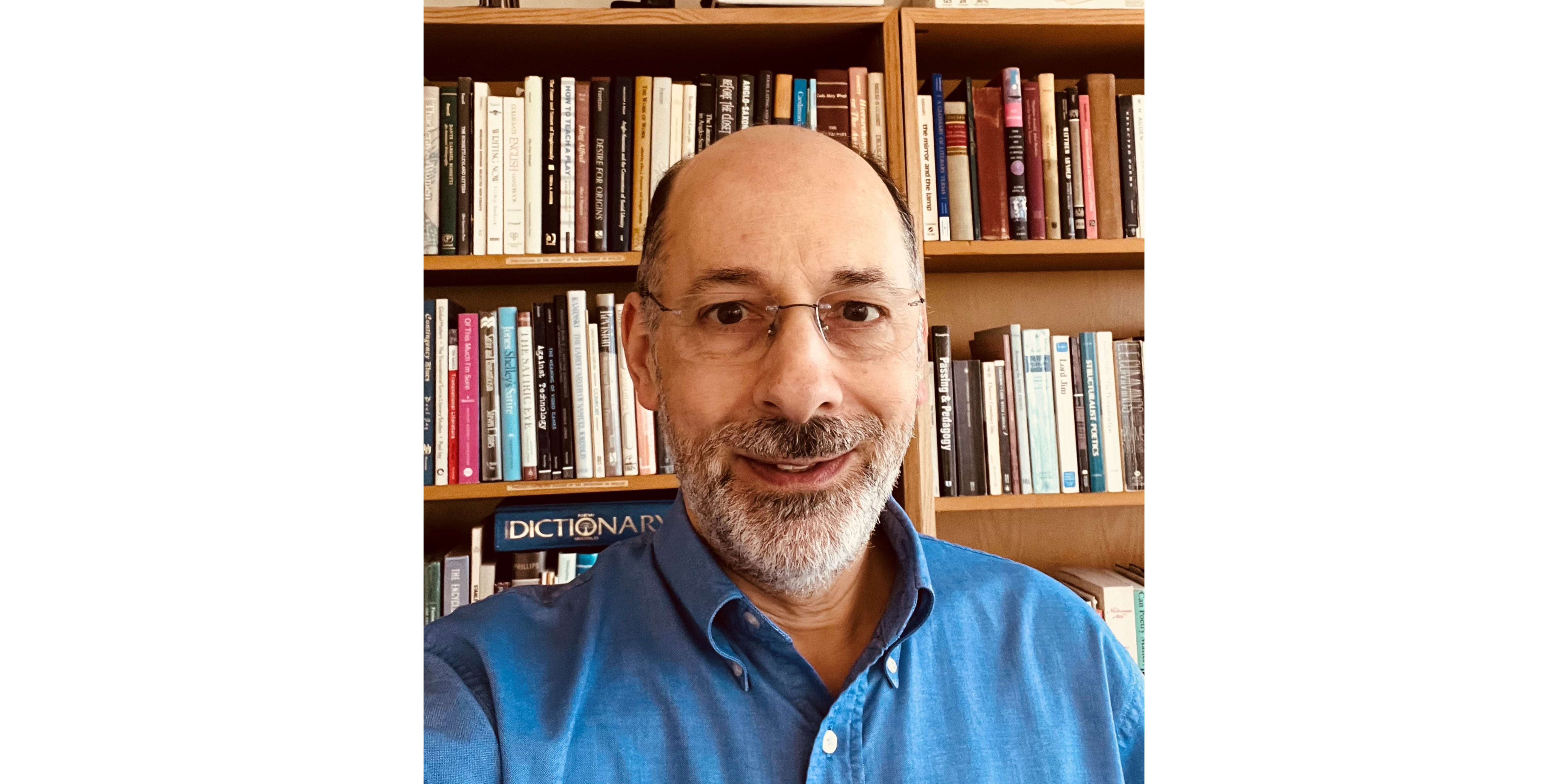Dr. David Chinitz's tenure as English Department Chair comes to an end (6/3/2024)

After six years, Professor David Chinitz will be stepping down from his position as Chair of the English Department.
Dr. Chinitz sought the position of chair as a way of “paying forward” the generosity of his predecessors.
“Several senior colleagues had served as chair during my time here so that I could accomplish what I wanted—publish my books and articles, teach the courses I wanted to develop, and do the service that appealed to me. The chairs gave up their time so that I could have my career. Eventually it felt like my turn to serve so that others could have their careers. Because that's fundamentally what the chair does: the chair makes it possible for all their colleagues to do the best work they can do. After six years I understand much better what the Jesuits mean when they talk about being a person for others, because as chair, you really have to put yourself aside and serve,” he says.
His two three-year terms in the position have been defined by the COVID-19 pandemic and the retirement of many senior faculty members.
When the pandemic hit Loyola’s campus, Dr. Chinitz says that many of the faculty—including himself—had never used Zoom before, and only a handful of faculty had ever taught remotely.
“I didn't know that you could even see a class of 35 students on the screen. And I'm relatively comfortable with technology, while a lot of faculty are not. There was a lot of anxiety aboutsurviving this unprecedented episode, and no one knew how long it was going to last and what it would be like teaching online,” he says. I would have to say helping the department through that crisis has to be one of my main accomplishments as chair. It's not something I planned on. But you respond to what comes up.”
Another hurdle that Dr. Chinitz saw the department through was the Voluntary Transition Incentive Program, or VTIP. Seven English tenured professors accepted the university’s retirement package—the most of any academic unit at Loyola—which gutted the department amid the ongoing pandemic.
“The loss of all that continuity and experience was another kind of crisis. On the positive side, we were able to use those vacancies to hire great new people,” he says. “Thanks to those new hires our curricular offerings have greatly expanded, and the tenure-track faculty are a much more diverse group than ever before.”
These changes led to Long Le-Khac, Aqdas Aftab, Katarzyna Lecky, Madeleine Reddon, Nami Mun, Anushka Sen, and Harrison Graves being hired under Dr. Chinitz, together with important additions to the Writing Faculty: Brandiann Molby, Jaime Hovey, Ryan Peters, Shelbi Sleevi, Michael Slager, Nur Karatas, and, most recently, Katherine Scharfenberg.
The hiring process has allowed the curriculum to expand beyond its traditional focus on the historical periods of British literature. When Dr. Chinitz started at the department in 1993,“modern literature and American literature were afterthoughts. The major was defined by a serious of historical periods in British literature—medieval, Renaissance, 18th-century, Romantic, Victorian—plus American literature, which was seen in its entirety as one more such area. “The model now is very different,” he says, “arguably messier, but far more inclusive. And by the way we still have outstanding offerings in those historical periods!”
Dr. Chinitz started at the university in 1993, was tenured in 1999, and achieved full professor status in 2008. During those years, he served as Graduate Programs Director; later he was president of Loyola’s AAUP and Phi Beta Kappa chapters. He also founded and continues to lead Global Attack, the English department’s Madrigals group, which he started with graduate student Julia Daniel in 2007.
In the classroom, Dr. Chinitz teaches modernist poetry, the Harlem Renaissance, and the Jazz Age, concentrating on such authors as T. S. Eliot, Marianne Moore, William Carlos Williams, and Langston Hughes.
When he thinks about his teaching, Dr. Chinitz says that a quote from another modernist poet that he teaches, Wallace Stevens, comes to mind.
“He said that the poet’s function is to make his imagination become the light in the mind of others. The satisfaction comes from seeing what you’ve dreamed up being read by others and entering their imagination. I would say something like that is my favorite part of teaching—seeing what I love and know become loved and known by my students.”
Dr. Chinitz has just been appointed to a new position in the College of Arts & Sciences: Associate Dean for Faculty Affairs. He sees that role as an extension of what he did as chair, now reaching to faculty both in the English Department and elsewhere. The job will bring new challenges and a different focus, but he hopes not to lose contact. “I want to maintain my ties with the department, even if it’s not in the same everyday way,” he says. “It’s been my home for 31 years, and I have no intention of giving it up.”
